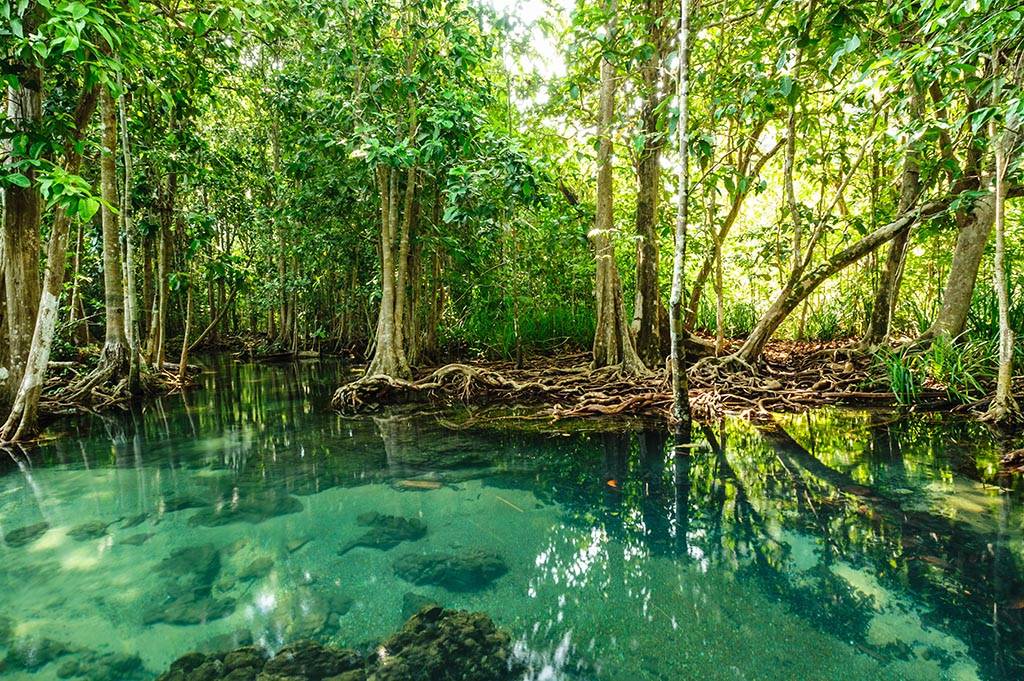
As per UNESCO, mangroves are disappearing at a faster pace, about 3 to 5 times faster than the overall losses of world's forest cover mainly due to urbanization, infrastructure development and agricultural land conversion.
Mangroves, as biologically complex ecosystems, play a crucial role in mankind’s well-being and on the health of our Planet. Mangroves are mainly grown in tropical and sub-tropical regions, on the boundary between land and sea, covering a surface of about 14.8 million hectares (globally), or roughly equivalent to the size of Greece.
What are Mangroves?
-
Mangroves are very unique ecosystem on the boundary between both land and sea but confined only to some regions of the world. This is contributing to the food security, wellbeing and protection of coastal communities across the world.
-
They also nourish a rich biodiversity as well as offer a valuable nursery habitat for fish, crustaceans and other aquatic species. It acts as a form of natural defence against tsunamis, storm surges, erosion as well as rising sea level.
-
Soils near mangroves are highly effective carbon sink and therefore plays crucial role in sequestering large amounts of carbon.
Steps taken by UNESCO for the Conservation of Mangrove Ecosystem:
UNESCO has always been involving deeply in helping the preservation of mangroves ecosystem, at the same time improving the livelihoods of the local communities. Timely incorporation of mangroves in World Heritage Sites, Biosphere Reserves as well as UNESCO Global Geo-parks provides improved knowledge, management as well as conservation of mangroves throughout the world.
Coastal Development Threat:
“They protect biodiversity by sheltering and nurturing marine life. They function like filtration systems, absorbing nutrients and pollutants. They fight coastal erosion, acting as breakwaters to dissipate storm surges and wave energy. Above all, they play an essential role as carbon sinks, sequestering atmospheric and oceanic carbon for long periods of time,” said Ms. Azoulay.
In spite of numerous benefits, UNESCO estimated that some countries lost more than 40 percent of their mangroves between 1980 and 2005, often due to the development of coastal regions.
Although human health has always depended on the health of the planet, Ms. Azoulay said the importance of mangrove systems is now increasingly clear.
“The world is now waking up to the importance of mangroves- and other blue carbon ecosystems, including salt marshes, sea-grass beds and coastal wetlands,” she added.
Local Partnerships are Crucial:
UNESCO attempts to preserve mangroves through its work on Global Geoparks and World Heritage Sites, the latter of which alone spans more than 10 per cent of all marine protected areas globally, or 200 million hectares.
“In these areas, UNESCO is committed to implementing science-based solutions in coordination with local and indigenous communities, to support humanity’s ability to cope with socio-ecological change,” she said, pointing to examples in Thailand, Senegal, and the United Arab Emirates.
Moreover, more than 700 sites in 129 countries are part of the UNESCO World Network of Biosphere Reserves, 50 this year itself, as the UN launches a 'Decade of Ecosystem Restoration'.
“Through these initiatives and others, we are working to protect mangroves and to better support scientific research into these environments,” said Ms. Azoulay.
She urged people everywhere to contribute to conservation efforts “so that, together, we can put a stop to mangrove habitat destruction, and restore what we have already lost.”
(Source: United Nations)
















